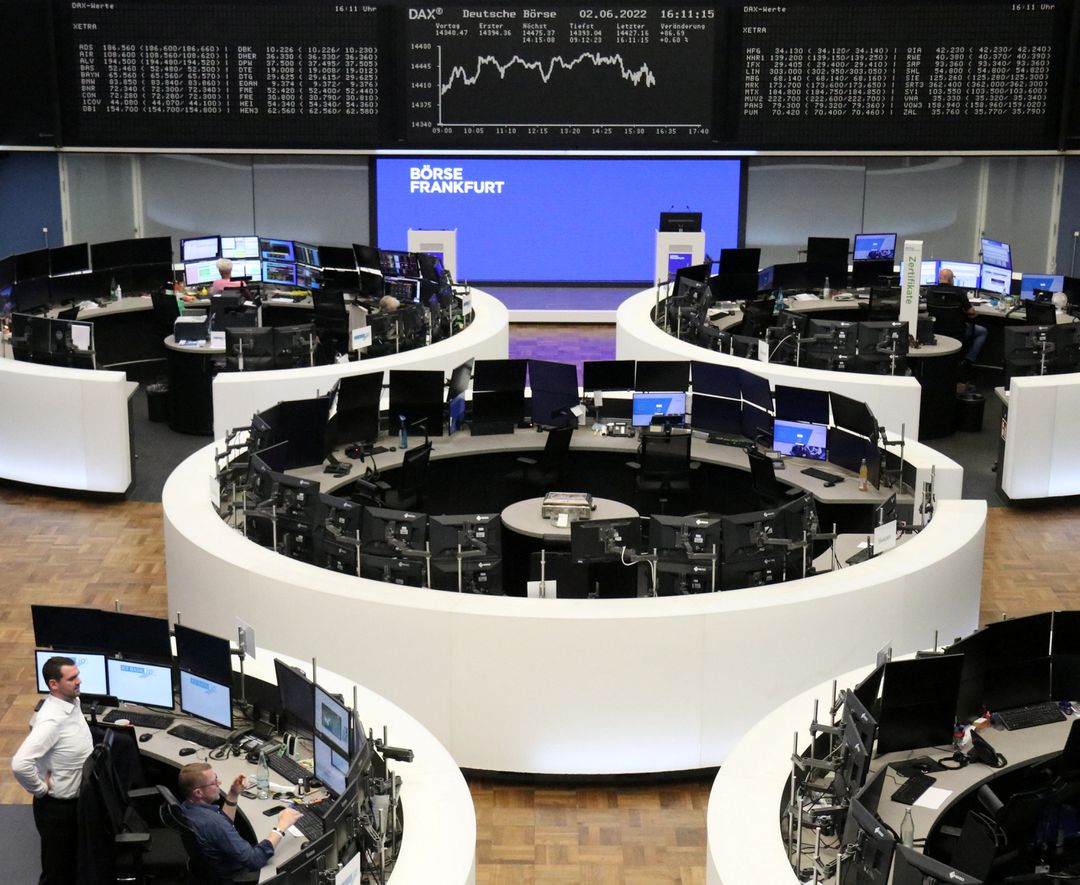A recent recovery in European shares looks set to stall and not reclaim end-2021 levels for well over a year, capped by fears of an energy supply crunch, slowing growth and sky-high inflation, a Reuters poll found.
The median forecast from the survey of 11 fund managers, strategists and analysts polled Aug. 9-23 saw the pan-European STOXX 600 index (.STOXX) dipping to 425 points by year-end, around 1.5 per cent lower than Tuesday’s close of 431.35.
“The outlook remains quite uncertain … rate action together with the persistent increase in fuel/electricity prices will drive the economy into a (short-term) recession,” said Luca Rubini at Bestinver.
However, the blue-chip index (.STOXX50E) was expected to rise 2.7 per cent to 3,750 by the end of this year, the median of 17 forecasts showed.
European shares had a terrible first half but showed signs of a recovery in July and August on a better than expected earnings season, although a slowing global economy was now expected to clip further gains.
The STOXX 600 (.STOXX) is on track for its best two-monthly performance since the two months to the end of April 2021, having gained over 6 per cent in July and August alone.
By end-2023 it was expected to have gained a little over 7 per cent to 465 points, still short of the 487.8 it closed 2021 at.
EARNINGS SURPRISINGLY RESILIENT
According to the latest data from Refinitiv I/B/E/S, second-quarter earnings are expected to have increased over 29 per cent, mainly due to a rise in profits from the energy sector as oil and gas prices remain elevated.
Excluding the energy sector, earnings are expected to have increased around 9 per cent, Refinitiv data showed.
“The good news is that earnings season was better,” said Arun Sai, senior multi-asset strategist at Pictet Asset Management in London.
“Corporates are definitely more resilient than we would have anticipated.”
Sai cautioned however that earnings expectations are likely to come down as analysts begin to price in a European recession.
“What’s worrying about expectations for earnings growth for the next three years is that it comes from further margin expansion.
“Not only are they saying corporates will be able to protect margins, they’re saying they’re going to expand further, right in the face of economic activity rolling over,” Sai said.
Signs that economic activity is slowing in the euro zone are clear.
Survey measures of activity, such as Purchasing Managers’ Indexes, have shown business activity has ground to a halt or even contracted in some countries, with expectations things will get worse as Europe faces the prospect of a gas supply crunch during the winter.
Those fears were heightened on Friday when Russia’s state energy company Gazprom said it would be halting natural gas supplies to Europe via the Nord Stream 1 pipeline for three days at the end of the month.
On a regional basis, respondents to the survey expected Germany’s DAX (.GDAXI) to hit 14,000 points by year-end, a 6.1 per cent increase from Tuesday’s close.
France’s CAC was seen hitting 6,342 points, down 0.3 per cent from Tuesday’s close, while Britain’s FTSE 100 was expected to close the year at 7,450 points, down 0.5 per cent from Tuesday’s closing price.







Click here to change your cookie preferences